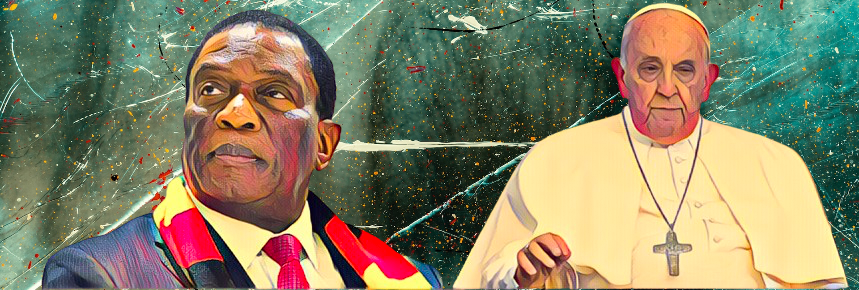KEY POINTS
-
Zimbabwe joins worldwide tributes after Pope Francis’ death at 88, with President Mnangagwa praising his “humility and justice”
-
The first Jesuit pope revolutionized Church stances on LGBTQ+ inclusion, abuse accountability, and women’s roles while maintaining personal austerity
-
Local Catholics cherish memories of his 1980s humanitarian work, as the nation prepares memorial services for the people’s pontiff
The world stood still on Easter Monday as news broke of Pope Francis’ passing at age 88. Zimbabwean President Emmerson Mnangagwa led national tributes to the pontiff, whose death marks the end of an era for the Catholic Church and global humanitarianism.
“I join the world in mourning the passing of His Holiness Pope Francis, a man of profound humility who stood for peace, compassion, and justice,” President Mnangagwa posted on X (formerly Twitter). “We extend our heartfelt condolences to the Catholic Church and Catholics around the world. May his soul rest in eternal peace.”
The Vatican confirmed the beloved leader died at 7:35 AM in his modest Casa Santa Marta residence, following a prolonged respiratory illness that had hospitalized him for 38 days earlier this year. Iharare reports that Pope Francis was Born Jorge Mario Bergoglio in Buenos Aires, Argentina, Francis made history as both the first Jesuit and first Latin American pope when elected in 2013.
Pope Francis: How a humble priest changed the church
Francis’ papacy was defined by radical inclusivity and bold reforms. His famous 2013 remark “Who am I to judge?” regarding gay priests set the tone for a leadership style that prioritized mercy over dogma. Under his guidance, the Church:
-
Instituted historic blessings for same-sex couples
-
Reformed sexual abuse protocols
-
Appointed women to key Vatican positions
“For Pope Francis, it was always to extend the arms of the church to embrace all people, not to exclude anyone,” said Cardinal Kevin Farrell during the official announcement.
The pontiff’s connection with marginalized communities resonated deeply in Zimbabwe, where over 1.2 million Catholics remember his 1980s work with Bulawayo’s poor as Father Bergoglio. “He visited our township clinic during the cholera outbreak,” recalled 72-year-old Thandiwe Ndlovu of Mbare. “Unlike other priests, he drank from the same cup as patients.”


